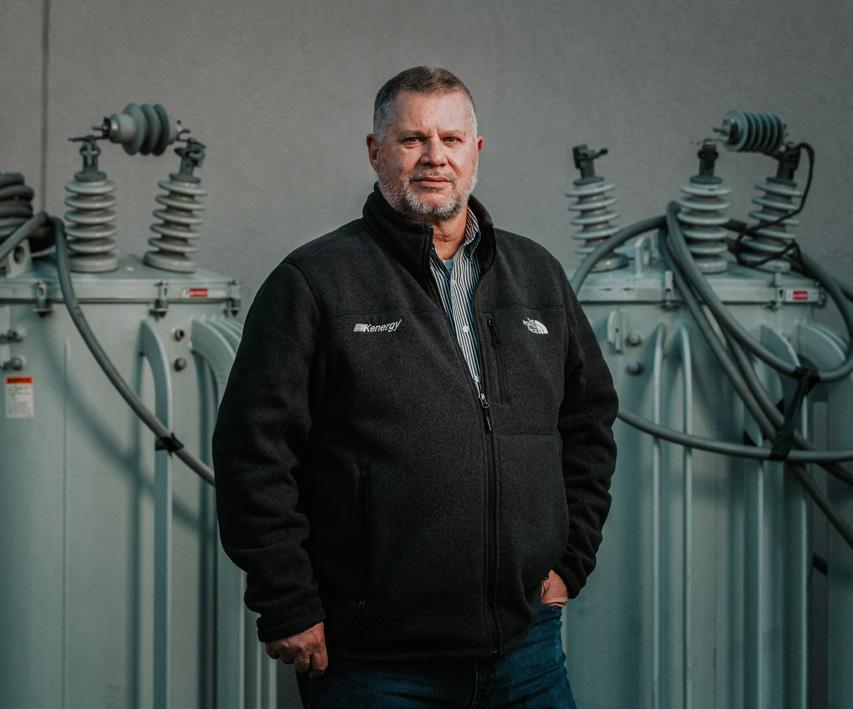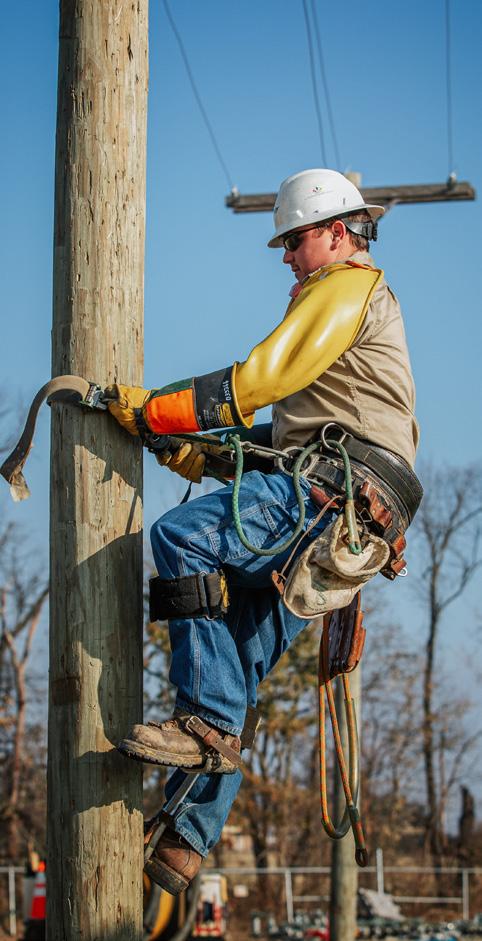
2 minute read
LINEMEN ARE THE BACKBONE OF DISASTER RECOVERY
By Meghann Richardson
When a natural disaster strikes, it takes an entire community to help pick up the pieces. From neighbors to city officials, volunteers and first responders — it’s all hands on deck to repair all the damage.
Some of the first to help with the cleanup? Linemen who are sent out after the storm to restore power to homes and businesses.
Kenergy lineman Tony Howard said the scope of the work ahead can be overwhelming.
According to the Bureau of Labor Statistics, approximately 2,720 linemen work in Kentucky. When major disaster strikes, other linemen from surrounding states are often called to help with cleanup.
Linemen are the backbone to any and all restoration efforts, whether it be a national disaster or strong storms passing through a service area.
Howard said in his 40 years of service, the 2009 ice storm was the worst disaster to hit their system. He said it was several weeks of long hours for all the employees and the members who were without power. “It took a long time to get power fully restored to our service territory, unlike a passing storm, one that may affect only a portion of the system that our members are more accustomed to,” Howard said. “The 2009 ice storm affected our entire system.” Linemen often work 16-hour days after natural disasters and deal with poor working weather conditions, falls, burns, explosions and more.
Amber Farmer, marketing director at Disaster Team, said their group also helps with clean up after natural disasters. Like linemen, they are available 24/7/365 for any emergency to homes and businesses—big or small.
Some of the natural disasters they help provide aid from include tornados, hail damage, storm damage, lightning strikes, wind damage and anything else that would be considered an act of God.
Farmer said Disaster Team is on site as soon as possible to help alleviate secondary damages to the property by putting a tarp on a roof or boarding up windows and doors.
“There is no job too big or too small,” she said. “In some cases, people may have to temporarily move out of their home and relocate to a hotel room for a few days or to a rental house/apartment for a few months, depending on the extent of the damages. We work with homeowners/business owners and insurance companies to ensure that the owner is taken care of and that everything is put back to the way it was, or better.”











